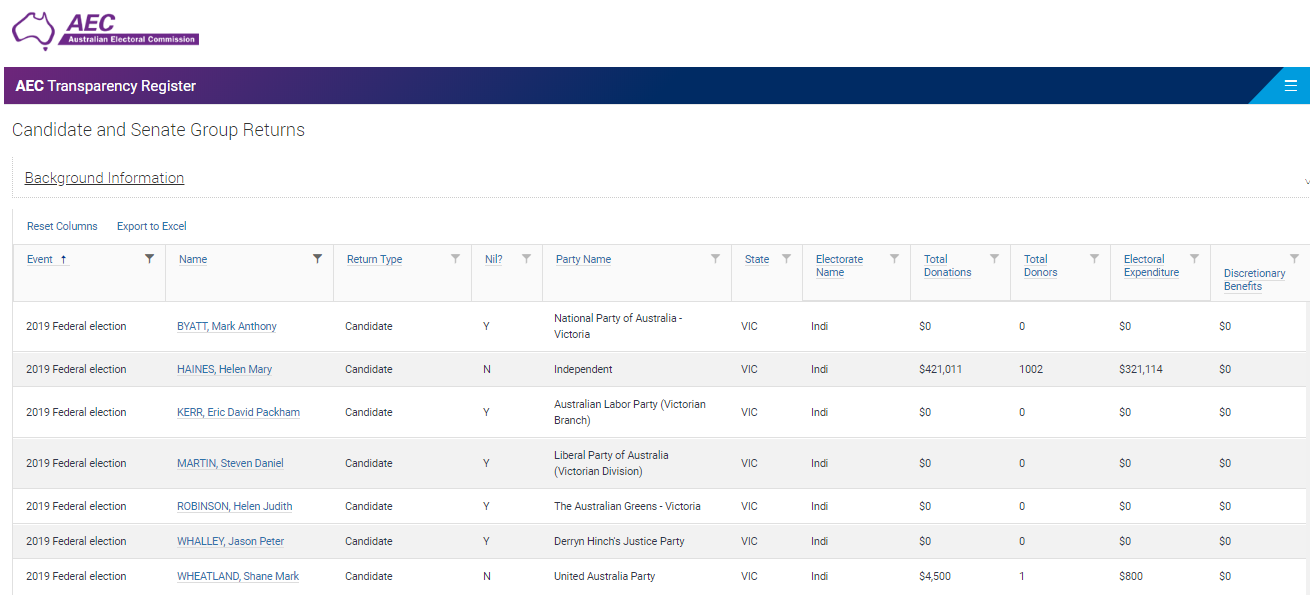Opinion
By HELEN HAINES MP
Independent Federal Member for Indi
Political, parliamentary and public service integrity is fundamental to the strength and vitality of Australian democracy.
Most people rightly expect a high standard of ethical behaviour from those of us who are elected or appointed to represent the public interest.
I hear this consistently from many people of my electorate of Indi – during the 2019 federal election campaign and since I became their elected member.
It is reflected in the call from Transparency International Australia for a robust federal integrity commission – one that has strong public support from 67 per cent of Australians.
I recently took part in a panel discussion about the future of Australian democracy with Labor’s Tanya Plibersek MP (Sydney), the Liberals’ Dave Sharma MP (Wentworth) and political commentator Michelle Grattan.
We talked about the latest study by the University of Canberra’s Institute for Policy Analysis and Governance for the Museum of Australian Democracy. The study shows that politicians (61pc) are more satisfied than voters (41pc) with our democratic system. It reports that trust in government and Australian democracy is declining and that people expect politicians and public servants to be properly accountable for their conduct in public office.
What’s also fascinating is that it reveals 75pc of politicians and citizens agree that the amount of money political parties and candidates can spend on election campaigning and how much they can accept from donors should be limited.
But this aspiration is yet to be reflected in the Commonwealth Electoral Act. Parliament and government is yet to ensure that obligations for candidates and political parties and groups to disclose the sources of campaign funding are the same for all.
All candidates – whether an Independent like me or a party candidate – are required to lodge a funding disclosure return, called a ‘Candidate Return’, within 15 weeks of a federal election. This return requires all of us to declare the total value of donations and the identity of any person or organisation giving to individual campaigns more than $13,800 – the public disclosure threshold set by parliament in the Act.
A candidate also must disclose any gifts-in-kind – such as professional advice – valued at more than $13,800, and the total sum of election expenditure. This election, in a bid for better transparency, I chose to improve on that threshold and declare all donations, including cash and in-kind above $5000.
When the Australian Electoral Commission published these returns on November 4, 2019, a summary of the disclosures on what’s called the Transparency Register for those candidates who contested Indi in the 2019 election showed as follows:
Only two candidates – Shane Wheatland and me – reported donations and expenditure.
Voters deserve to know how candidates are funded and who funds them.
A person donating cash or property to a party candidate in an electorate like Indi can make that gift to the party’s Indi branch.
But Indi voters won’t usually find out about this because the law requires that gift to be reported by the party’s state division. Where this happens, the party candidate is directed to lodge a ‘nil (zero) return’.
This means political parties – reporting many months after candidates lodge their returns – can hide donations and expenditure outside the electorate in which that money’s been given or spent. An independent can’t.
A political party can receive a tax deductible donation at any time. An independent candidate can’t. An independent candidate can only receive a tax-deductible donation in the official election campaign period – from the date an election is called to the date the result is declared.
The result of all of this is that we will never know how much cash and in-kind professional services were given, and money spent, by the major parties in Indi or any other electorate.
I also find it extraordinary that a candidate – any candidate – can also receive a personal cash gift up to $13,800 but is not required to declare it if it is not used ‘solely or substantially’ for an election. This seems to me to heighten the risk of corruption rather than minimise it.
Donors to major parties include big business gaming, betting, tobacco, coal and ore miners, brewers, banks, insurers and pharmaceutical companies. Across Indi communities, 1001 people and one not-for-profit organisation vitally concerned about the future of the planet contributed to my Independent campaign.
I want to see all donations to all candidates published in real time so that voters can see these donations before voting.
We need comprehensive, robust reform of the system of political donations and disclosure and the law should the same for all.
And we need a federal integrity commission with real powers of investigation and disclosure to ensure that those of us entrusted to public office are accountable to each and all of our citizens.
Published in The Border Mail on November 9, 2019

